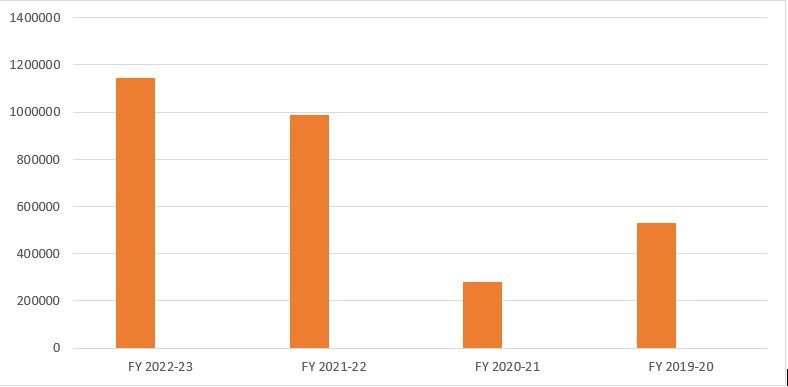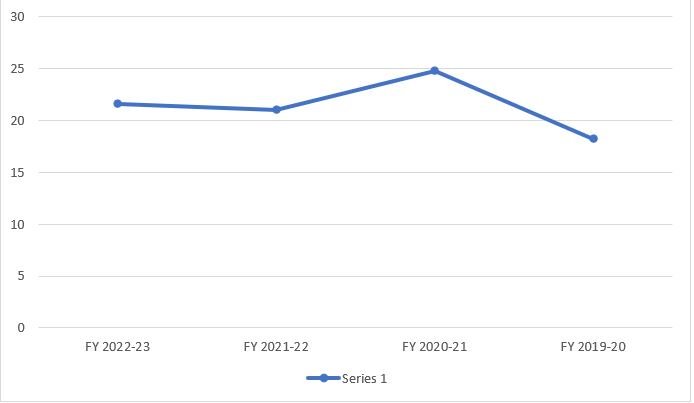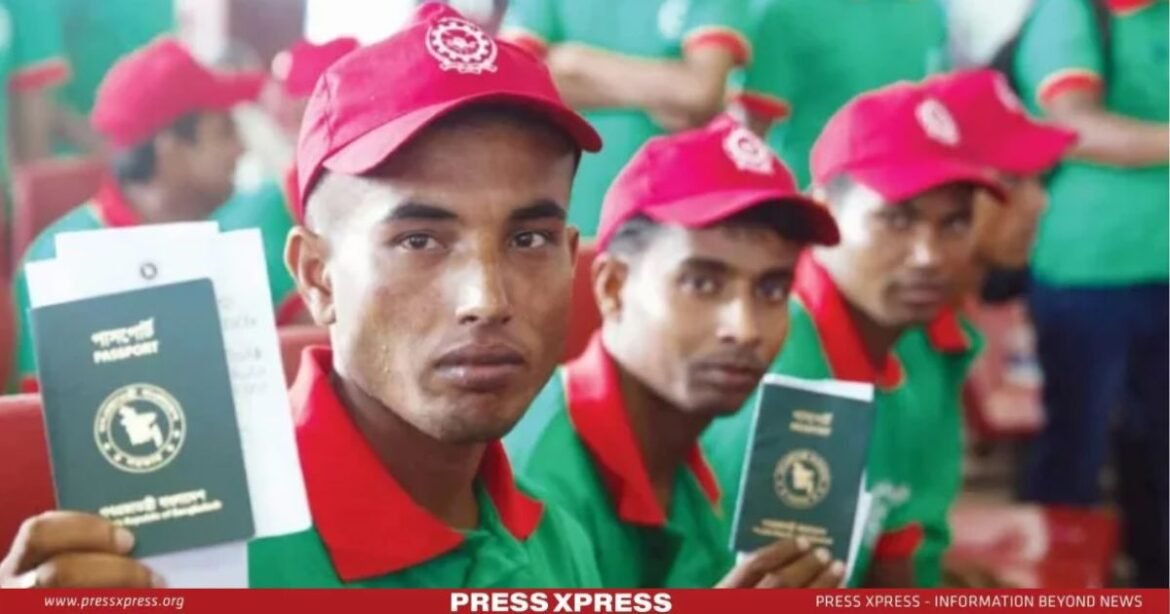The skilled manpower collaboration between Bangladesh and Russia has become a model of successful cooperation within a very short period of time, addressing the human resource needs of both nations. This strategic partnership reflects a shared commitment to leveraging each other’s strengths for collective growth. Bangladesh has proven to be a reliable source of skilled manpower, particularly in sectors like IT, healthcare, engineering, and construction, while Russia has shown a growing demand for such professionals.
You can also read: Trump Emerges as Frontrunner Amid Biden Criticism
The positive relationship is facilitated by strategic agreements ensuring efficient recruitment, training, and deployment processes. Moreover, there is a joint commitment to skill development and capacity building through education and training programs, enhancing workforce competitiveness. This collaboration not only yields economic benefits but also fosters cultural and social exchanges, laying the foundation for sustained cooperation between the two nations.
Russia taking skilled manpower from Bangladesh
According to the Bureau of Manpower, Employment and Training (BMET), 1.24 lakh workers have gone abroad from Bangladesh till November 29, 2023. Last year this number was 11 lakh 35 thousand.
On the year 2022, for the very first time A Russian shipbuilding company sent a demand note to the Bangladesh Overseas Employment and Services Limited (BOESL) for hiring workers.
Earlier BOESL signed a memorandum of understanding with the Russian shipbuilding company. The company officials visited Western Marine and Ananda Shipyard, and expressed willingness to hire workers from Bangladesh.
In November, 2022 Russian employers once again demanded recruiting skilled and semi-skilled workers from Bangladesh, targeting 961 individuals across 11 sectors. (Additionally, the positions included roles such as storekeepers, housemaids, laundresses, cleaning women, flexible package-scale men, pig farm operators, grain processing operators, semi-skilled workers in sugar production, loaders in the railway transport sector, and loaders in the packaging sector.)
This initiative was facilitated by BOESL. The recruitment was primarily focused on the construction, hospitality, and transportation sectors in Russia, with expectations of further expansion.
The move comes in response to Russia’s severe manpower shortage, reaching 42% in July, according to The Moscow Times. President Putin’s mobilization campaign in September 2022 aimed to address this deficit, resulting in an increased demand for skilled workers. Russia is specifically seeking workers for various positions, including mold operators, carpenters, crane operators, electric welders, and more.
This recruitment drive follows a previous initiative in shipbuilding, where 100 skilled workers from Bangladesh were hired by Russian companies in November, 2022.
Ali Haider Chowdhury from the Bangladesh Association of International Recruiting Agencies sees this as an opportunity for expansion, considering Russia’s ongoing labor shortage. The geopolitical situation, including a rise in the value of the Russian ruble, has led to a decline in Central Asian workers traditionally employed in Russia, creating an opening for workers from Asian countries like Bangladesh.
While Russia has not been a typical destination for Bangladeshi workers, many students migrate to the country for higher education, facilitated by the Russian State Scholarship Scheme since 1972. However, only a small number of workers have been employed in Russia so far, with the majority being students who have graduated from Russian universities.
Bangladesh requested Russia for taking skilled manpower
In a meeting with Oleg Kozhemyako in 2021, the Governor of Russia’s Primorsky Region, Bangladesh’s Ambassador to Russia, Kamrul Ahsan, requested Russia to consider employing skilled manpower from Bangladesh. During the meeting in Vladivostok on September 17, Ambassador Ahsan highlighted Bangladesh’s remarkable progress under Prime Minister Sheikh Hasina and discussed the ongoing economic cooperation between the two countries, particularly emphasizing the Rooppur nuclear power plant project.


Ambassador Ahsan urged the Governor to explore collaboration in new areas and proposed the recruitment of Bangladeshi skilled workers in the shipbuilding industry in Vladivostok. He emphasized the international recognition of Bangladeshi workers’ skills in shipbuilding, citing their successful presence in Singapore’s shipbuilding industry. Ahsan also invited industrial entrepreneurs from the Primorsky region to invest in Bangladesh’s shipbuilding sector.
Governor Kozhemiako assured the Ambassador of taking effective steps to hire Bangladeshi workers in the shipbuilding industry and suggested discussions to establish a structured recruitment process. The Honorary Consul of Bangladesh in Vladivostok, Alexander Zuvko, was appointed as a coordinator for this initiative.
Ambassador Ahsan highlighted the diverse skills of the 13 million Bangladeshis working abroad and expressed confidence that Bangladesh could supply various skilled manpower to Russia if the labor market is opened. The meeting, attended by officials from both sides, aimed to strengthen economic and commercial ties between Bangladesh and the Primorsky Region of Russia.
The skill gap among migrant workers is evident in the remittances sent by Bangladeshi workers, with an average monthly amount of $203.33. Despite being the world’s sixth-largest labor supplier in 2022, Bangladesh lags behind the Philippines in remittance receipts. The Philippines, with 6 million workers, ranks fourth globally in remittance receipts, while Bangladesh is eighth.
Russian ambassador on relationship with Bangladesh
On 7th December, in this speech of the ambassador of Russia in the event named ‘Talk with ambassador’, H.E. Aleksandar Mantytskiy, the ambassador expressed gratitude for addressing the Bangladeshi media and outlines the strong historical ties between Russia and Bangladesh, emphasizing the Soviet Union’s support for Bangladesh’s liberation in 1971. The speech covered key historical events, bilateral agreements, and principles guiding relations, including equality and adherence to international law. The focus extends to recent political and economic cooperation, despite challenges like the COVID-19 pandemic and sanctions against Russia.
New areas of potential collaboration, such as space exploration and employment of Bangladeshi workers in Russia, are discussed. The speaker addresses the Russia-Ukraine crisis, attributing global food problems to broader economic factors and underscoring Russia’s commitment to fulfilling agricultural export obligations. The speech concludes with the speaker’s concerns about the humanitarian situation in Gaza, criticism of perceived double standards in Western reactions, and reservations about the U.S.-promoted concept of a “free and open Indo-Pacific region,” advocating for regional cooperation based on international law and discouraging an arms race.
Bangladesh-Russia Friendly Relationship
From 2022, Bangladesh and Russia have become partners in terms of exchanging skilled and semi-skilled manpower for different sectors. Not only in this sector, but Bangladesh and Russia have a very friendly relation since the birth of Bangladesh.
In recent years, the bilateral relationship between Bangladesh and Russia has witnessed a significant upswing, particularly in the realm of trade. This rapidly increasing partnership reflects the shared commitment of both nations to fostering economic cooperation and exploring mutually beneficial avenues for growth. As Bangladesh continues to make remarkable strides in various sectors under the visionary leadership of Prime Minister Sheikh Hasina, the nation has emerged as an attractive partner for countries seeking dynamic trade opportunities.
Against this backdrop, the deepening ties with Russia signify a strategic alignment of interests, with a focus on leveraging each other’s strengths to enhance trade relations. This introduction delves into the evolving economic collaboration between Bangladesh and Russia, shedding light on the key initiatives, trade sectors, and diplomatic engagements that underscore the growing significance of this bilateral partnership.
Expert Opinion

International Relations Analyst,
Department of International Relations, Jahangirnagar University
How do you anticipate the export of skilled manpower from Bangladesh to Russia will influence the economy?
‘’Bangladesh needs to get out of the traditional market of Bangladesh’s manpower export and reduce its dependence on specific countries. Bangladesh must create new markets in the changing multidimensional world system. And in that case Eastern Europe along with Russia can be the name of a new possibility of Bangladesh’s manpower export, which will connect our economy to a new level.’’
Conclusion
The increasing exchange of skilled manpower between Bangladesh and Russia signifies a pivotal development in their diplomatic and economic relations. This collaborative effort not only addresses the workforce needs of both nations but also nurtures a deeper understanding and appreciation for each other’s cultures and expertise. The migration of skilled professionals acts as a conduit for goodwill, fostering the exchange of knowledge and innovation.
This emerging cooperation in skilled manpower trade paves the way for a more robust and dynamic partnership between Bangladesh and Russia. The movement of skilled workers establishes a bridge for stronger economic ties, enhanced cultural understanding, and collaborative initiatives. It sets the stage for the development of joint projects, research endeavors, and business ventures that can propel both countries toward shared prosperity.


